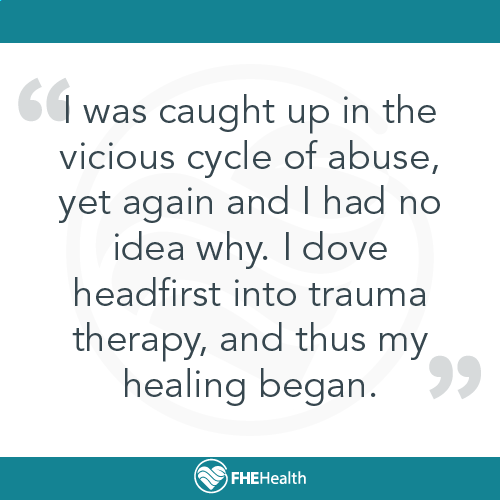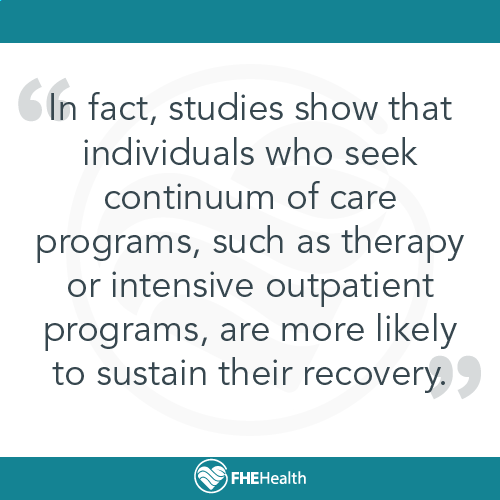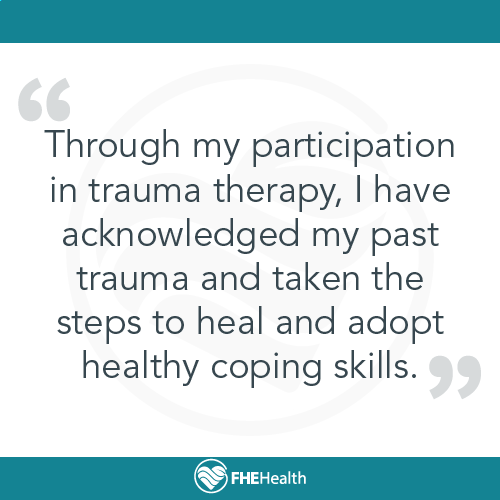
Understanding the complicated relationship between addiction and mental illness has been a debatable topic for quite some time. In fact, many people refuse to correlate the two and view addiction and even mental illness as an “excuse” for moral failing and lack of “willpower.” Let me give a little firsthand experience on the importance of addressing underlying mental health issues while simultaneously treating substance use disorder.
 I was one of the ignorant bystanders who condemned addicts and believed that they were poor unfortunates that clearly had no conscience. I held tight to my judgments until I became an addict. I didn’t grow up wishing that one day I would choose opiates and alcohol over my son or that I would hurt everyone I loved the most in order to achieve my next high. I promised myself I would never be one of those people. Once I crossed over the threshold, and was forced to seek treatment, I was sure I was going to do my 30-day stint in rehab, and I would be cured. The insanity of my preconceived notions would later contribute to my absolute misery in sobriety.
I was one of the ignorant bystanders who condemned addicts and believed that they were poor unfortunates that clearly had no conscience. I held tight to my judgments until I became an addict. I didn’t grow up wishing that one day I would choose opiates and alcohol over my son or that I would hurt everyone I loved the most in order to achieve my next high. I promised myself I would never be one of those people. Once I crossed over the threshold, and was forced to seek treatment, I was sure I was going to do my 30-day stint in rehab, and I would be cured. The insanity of my preconceived notions would later contribute to my absolute misery in sobriety.
The dual-diagnosis rehabilitation program, at FHE Health, challenged every ignorant thought I had on addiction and mental illness. It wasn’t long before I was forced to face the seemingly “normal” circumstances of my past – at which point I soon discovered several of my experiences were actually quite traumatic. I most definitely adapted to the chaotic lifestyle that commonly follows unhealed childhood trauma. In fact, I thrived in it – until I couldn’t drink, smoke, or consume enough substances to quiet the noise in my head and the pain in my heart. I spoke just enough with my therapist in treatment to have her think I was diving into the painful memories of my past, but the truth is, I was unwilling to be rigorously honest and rebelling against giving therapy a real shot.
Living in Denial of the Underlying Conditions
 I left treatment, and I believed I was cured. I stopped taking the recommended mental health medications and withdrew from my weekly therapy sessions. It wasn’t long before I relapsed. I was unwilling to look at the underlying mental health issues I was suffering from. Untreated complex PTSD and depression eventually led me right back to where it all began. After my relapse, I didn’t immediately seek therapy. I spent another two years white-knuckling my sobriety and miserable. I found myself subconsciously predisposing myself to the same traumatic situations over and over again. I was two years sober and downright miserable.
I left treatment, and I believed I was cured. I stopped taking the recommended mental health medications and withdrew from my weekly therapy sessions. It wasn’t long before I relapsed. I was unwilling to look at the underlying mental health issues I was suffering from. Untreated complex PTSD and depression eventually led me right back to where it all began. After my relapse, I didn’t immediately seek therapy. I spent another two years white-knuckling my sobriety and miserable. I found myself subconsciously predisposing myself to the same traumatic situations over and over again. I was two years sober and downright miserable.
I equated therapy for the mentally weak, and this ignorant assumption eventually brought me to my knees. You see, I was a part of the therapy shaming group. I knew if I didn’t begin to address my underlying mental health issues it wasn’t a matter of if I’d drink again but a question of when and if I’d make it back to recovery. I was caught up in the vicious cycle of abuse, yet again and I had no idea why. I dove headfirst into trauma therapy, and thus my healing began.
According to Psychology Today, individuals struggling with substance abuse are 6 times as likely to commit suicide, and ⅓ of all people who commit suicide are either under the influence of drugs or RECOVERING from addiction. This is a staggering but eye-opening statistic. I have lost friends in recovery to suicide. The stark nature of the disease of addiction is that this mental illness is patient and cunning by nature. Removing alcohol and other drugs is the first step of recovery, but not the solution. In fact, abstinence removes the chemical crutch and predisposes addicts and alcoholics to the full effects of their underlying mental health disorders.
12-step support groups are certainly a necessary component of recovery, but not the only available resource for recovering addicts. Studies show that individuals who seek continuum of care programs, such as therapy or intensive outpatient programs, are more likely to sustain their recovery. The combination of 12-step support groups and therapy participation proves to be an effective remedy for treating addiction and mental health while maintaining sobriety. This concoction proved to be the most effective strategy for dealing with myself as a whole – mind, body, and spirit.
Over the last year, life has never been fuller. I have never experienced the lust for life like I am experiencing today. For the first time in my life, I can look at myself in the mirror without total disgust or apathy. Through my participation in trauma therapy, I have acknowledged my past trauma and taken the steps to heal and adopt healthy coping skills. I am forever grateful for the awareness and healing that has been cultivated by way of engaging in therapy.
Fighting the Stigma
 If you are anything like me, and you find yourself sober but still unhappy – I urge you to seek some of the many resources available to you. I am so passionate about fighting the stigma of mental health and therapy because this process has ultimately saved my life. Keep reaching out for help. Remember you are never alone, and it will get better.
If you are anything like me, and you find yourself sober but still unhappy – I urge you to seek some of the many resources available to you. I am so passionate about fighting the stigma of mental health and therapy because this process has ultimately saved my life. Keep reaching out for help. Remember you are never alone, and it will get better.
Here are a few tips suggested by The National Alliance on Mental Health for further reducing and eradicating the stigma of mental health issues:
- Talk openly about your experiences with mental health
- Educate yourself and others
- Be conscious of the language you use when referring to mental health issues
- Encourage equality between physical and mental illness (remember mental illness is a disease just like heart disease or diabetes)
- Be compassionate with those struggling with mental illness
- Choose empowerment over shame
- Be honest about your treatment (share your experiences in therapy and other available mental health treatment services)
- Call people out for perpetuating the stigma, online and in-person
To fight the stigmas on mental health and therapy, it begins with me. I do my best to be as transparent as possible and avoid shame as I strive to be a productive member of society. I share my story as honestly and often as I can. I help others and try to make myself as available as I can to be support for other people who may be struggling with the same issues. Seeking help for your mental health is courageous and displays persistence and strength. No matter how you contribute to the mental health movement, you can be the change by merely acknowledging that mental health disorders are not a choice. Despite the obvious judgments of societal stigmas, we can all fight against the stigma by showing compassion and love to those struggling with mental health.






